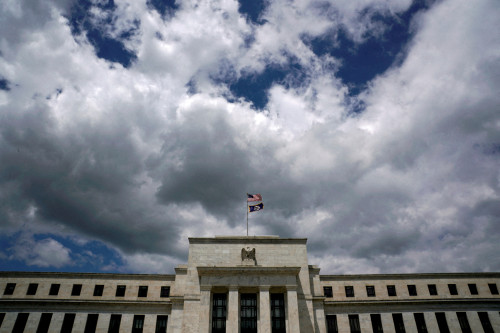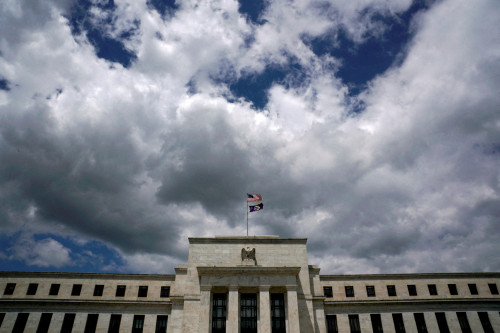By Howard Schneider
WASHINGTON (Reuters) -Lackluster new U.S. jobs data and a weak report on manufacturing highlight an emerging concern among Federal Reserve officials that employment could slip even as the risk of a tariff-driven round of inflation limits their ability to do anything about it.
New data from Intuit’s Small Business Index, compiled from the company’s business software clients, showed the smallest firms shed around 98,000 jobs in March, a 0.82% decline from February.
Data on hiring and layoffs for February showed a job market that was potentially losing steam more broadly, with a drop in job openings, a slight rise in layoffs, worker quit rates similar to those during the languid job market of the mid-2010s, and near balance in the demand for and supply of available employees.
“The small signals the market is showing point to retrenchment rather than expansion,” Allison Shrivastava, an economist with the Indeed Hiring Lab, wrote after the release of the job openings and layoffs data for February.
While investors following the report boosted bets the Fed would cut rates three times this year, more than central bank officials are projecting, a separate report on manufacturing sent a more confusing signal.
An Institute for Supply Management index of manufacturing activity fell, but its measure of prices paid by companies rose.
“The manufacturing sector is showing the first signs that stagflation may be coming for the broader economy,” wrote Inflation Insights President Omair Sharif, noting the price measure in the survey rose at the fastest pace since mid-2022.
It could be a confounding situation for the Fed.
Policymakers have said they will keep their benchmark policy rate in the current 4.25% to 4.5% range as they wait for a clearer understanding of how the tariffs and other policy changes being rolled out by President Donald Trump influence the economy.
However, one near-term impact that concerns them – a weakening economy coupled with rising prices – offers no easy monetary policy response.
In a new analysis, economists from the Atlanta Fed said a recent survey showed corporate financial chiefs expected tariffs to push their prices higher this year while cutting into hiring and growth.
About half of the firms in the survey imported supplies from China, Canada or Mexico, and “these firms became less optimistic, expected lower revenue and growth, and expected higher price and unit cost growth,” the authors said.
The tariffs Trump has unveiled so far include specific levies on imported metals and autos, with taxes on a broader set of nations anticipated on Wednesday.
New data on job growth and the unemployment rate for March will be released on Friday.
Atlanta Fed survey director Daniel Weitz said respondents facing new tariffs seemed caught in a “push and pull” between raising prices and shaving profits or canceling projects — examples of how the coming period may show the Fed struggling to read an economy pulled in contradictory ways.
Import-exposed firms, he said, appear poised to initially raise prices roughly in line with their own costs, but after that “we see margin compression and then to the extent they can’t compress any further they may have to cancel projects.”
(Reporting by Howard Schneider; Editing by Andrea Ricci)






